#amos milburn
Explore tagged Tumblr posts
Text
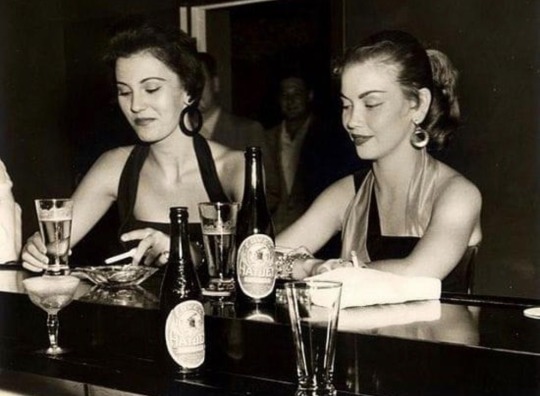

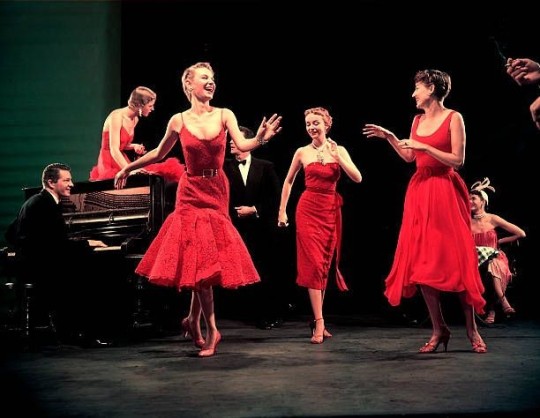
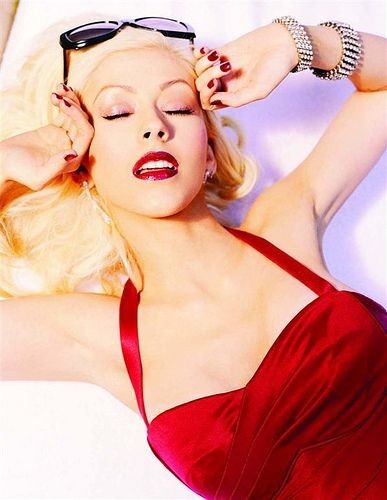
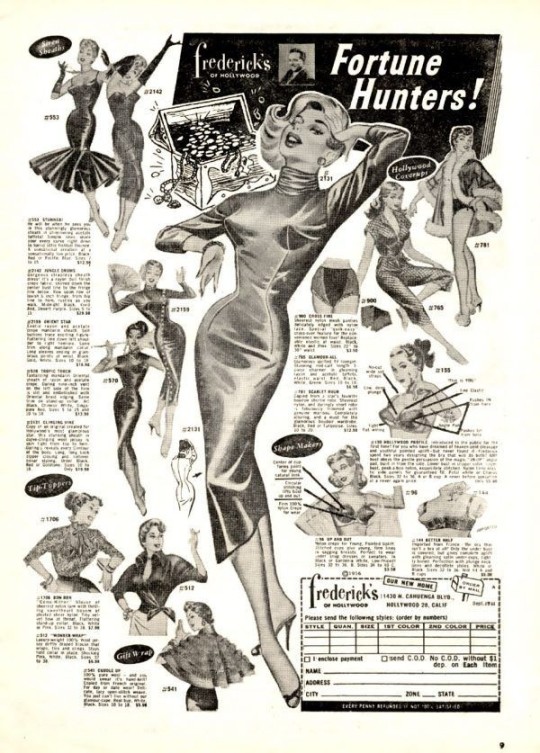
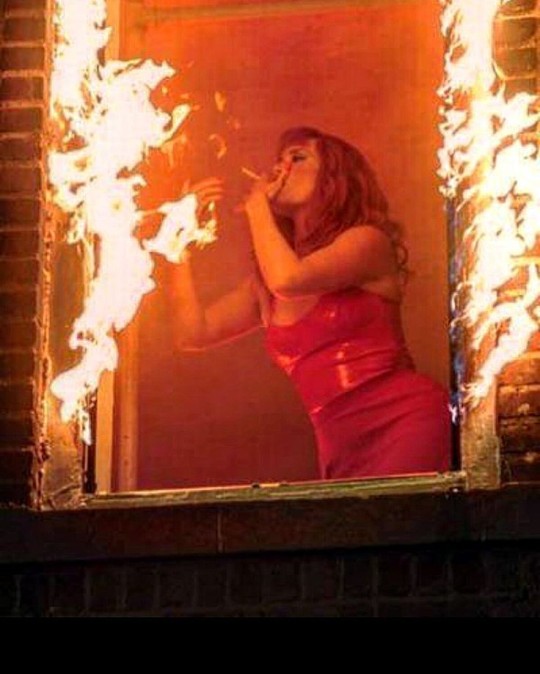
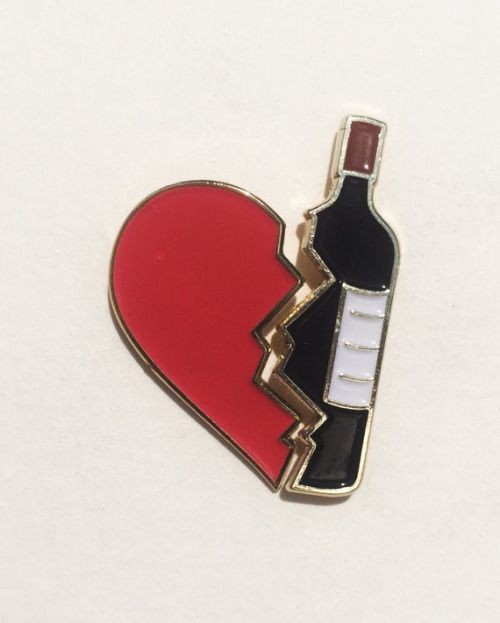
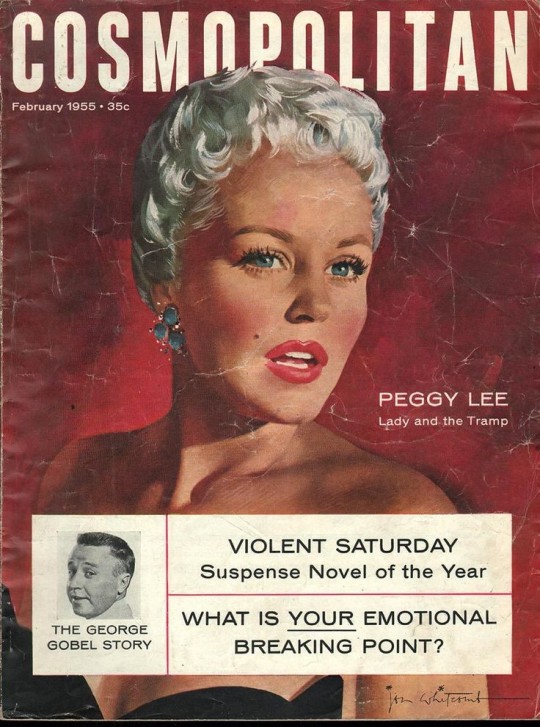

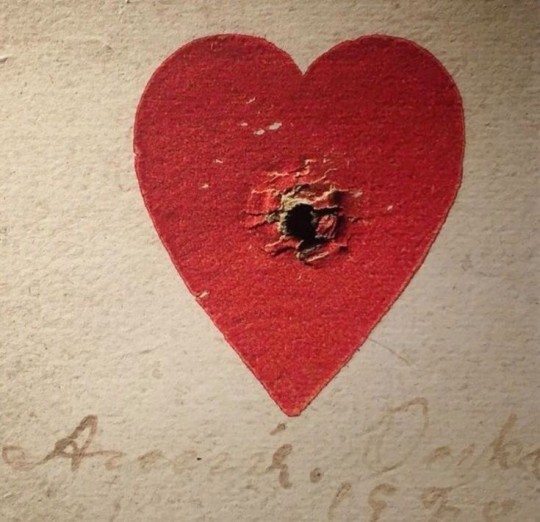
#1950s#partycore#havana#cuba#christina aguilera#back to basics#fredericks of hollywood#lovecore#not mine#flickr#audio#let me go home whiskey#amos milburn#Spotify
6 notes
·
View notes
Text
Billy Higgins: The Rhythmic Pulse of Modern Jazz
Introduction: Billy Higgins, one of the most influential drummers in jazz history, has been celebrated for his extraordinary ability to bring a sense of joy, sensitivity, and creativity to every performance. Over the course of his prolific career, Higgins became a key figure in the development of several jazz movements, particularly hard bop, free jazz, and post-bop. Known for his subtle touch,…
#Amos Milburn#Billy Higgins#Bo Diddley#Bobby Hutcherson#Cedar Walton#Change of the Century#Dexter Gordon#Don Cherry#Free Jazz#Herbie Hancock#Jackie McLean#James Clay#Jazz Drummers#Jazz History#Jazz Messiahs#Jimmy Witherspoon#Lee Morgan#Lucky Thompson#Ornette Coleman#Red Mitchell#Sonny Rollins#Takin&039; Off#The Shape of Jazz to Come#The Sidewinder#World Stage
3 notes
·
View notes
Text
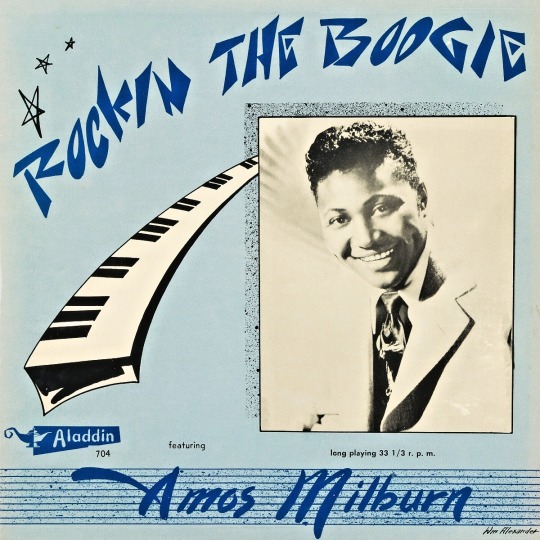
Amos Milburn - Rockin' the Boogie, 1952.
Cover by William Alexander.
10 notes
·
View notes
Text
0 notes
Text
Boogie Woogie - Amos Milburn
youtube
0 notes
Note
"(and take a guess at who destroyed the professional affinity they built with him" is this the colonel? jfc I keep hating that man
who else? leiber and stoller initially didn't know who elvis was and had some preconceived judgment in place (which happened to him a lot), but then once they actually met with him, they were impressed and developed a rapport. elvis wanted them to be in the studio when he recorded. they had suggestions and encouragement for him, about songs, about his career, and parker didn't like that, was threatened by the idea of them getting in the middle, or worse, giving him ideas (this would repeat throughout his life, it's not dissimilar to what happened with steve binder). the colonel eventually destroyed the relationship they built by sending leiber and stoller a blank page and calling it a contract as an intentional slight. they told him exactly what they thought of that, and never worked with elvis again.
longer details from here
"Jerry Leiber and Mike Stoller were like the rap artists of the early '50s, pushing buttons, inviting scorn and testing the limits, as rock roared into being from its roots as blues and rhythm and blues. They were writing music for black artists, when one of their songs, Hound Dog, was heard by a young Elvis Presley. His adaptation turned it into a No. 1 hit and helped aim Leiber and Stoller toward the Rock and Roll Hall of Fame.
They wrote 20 songs for Elvis until the brash young songwriters had a falling out with Colonel Tom Parker, the Svengali they now remember as a 'bully' and a 'foul, greedy' man who helped destroy Elvis. But the estrangement didn't change their respect for Elvis.
'We feel that Elvis Presley was the high water mark of the 20th Century. He's legend. No, he's myth. He's in that celestial place for mythological figures. At the time, we just thought he was a white kid trying to make it as a singer', says Leiber, the man who supplied the words as lyricist of one of the worlds' best-known songwriting duos.
Leiber and Stoller originally met in 1950, sharing a love of the blues and boogie woogie. They were writing for black artists, their earliest songs recorded by Jimmy Witherspoon, Little Esther, Amos Milburn, Charles Brown, Little Willie Littlefield and, among others, Willie Mae 'Big Mama' Thornton.
It was for Big Mama Thornton that they wrote Hound Dog in 1952. Her version came out in 1953 and was adapted by several groups. Stoller had gone to Europe with royalties from some of those early songs and was on his way home aboard the Andrea Doria when it sank in 1956.
Rescued by a lifeboat, Stoller arrived in New York with Leiber yelling from the dock: 'We've got a smash hit'. 'I said, 'You mean Big Mama Thornton's record?' He said, 'No, some white kid named Elvis Presley'. Elvis had heard Hound Dog in a Vegas Lounge by a group called Freddie Bell and the Bellboys', says Stoller.
Elvis' recording of Hound Dog was released in July of 1956 and bounded up the charts, selling millions of copies. Released the same year as Heartbreak Hotel, it put Elvis on TV and turned him into a phenomenon.
After Elvis' great success with his version of Hound Dog, Paramount Studios and music publishers Hill and Range selected additional Leiber and Stoller songs for Elvis' 1957 film Loving You. It was on April 30, 1957 while working on the movie Jailhouse Rock that Elvis first met Leiber and Stoller. They were skeptical of meeting the newcomer, thinking he was a country bumpkin. However, they were very impressed when upon meeting and talking to Elvis that he was very knowledgeable of R&B music and could discuss its nuances in great detail. They went on to work closely with Elvis on the Jailhouse Rock soundtrack with Stoller appearing in the film playing the piano for Elvis' character. After an incident of pitching songs and movie ideas directly to Elvis and not going through the usual chain of command with Elvis' manager, Colonel Tom Parker, they had a falling out with Parker and essentially ended their collaboration with Elvis. Fast-forward to 1960, they did write a couple of songs that were in the running for inclusion in Elvis' first post-army movie, G.I. Blues, but, ultimately they were not used. Although the direct collaboration ended, Elvis did choose several additional Leiber and Stoller tunes to record over the years.
'We were completely unconscious of what it might imply. We were just doing numbers', says Leiber. Stoller says those numbers were unfamiliar to white audiences because he and Leiber had written 'almost exclusively for black performers, so we wrote in a black idiom. People started thinking it was entirely new, but the base we started from was the blues and boogie woogie'.
Stoller says they didn't specifically tailor songs to that early Elvis persona but began by supplying songs they had already written, like Love Me, a ballad they had already recorded. 'Then we were asked to write for a movie, Loving You, with Elvis and Lizabeth Scott'. The next project, Jailhouse Rock, included four songs Leiber and Stoller wrote while held captive in a New York hotel.
They had been living in Los Angeles, and Stoller says they rented a New York hotel suite with a piano in the living area. 'We were given a script for the movie and kind of tossed it in the corner. We were having a ball in New York, going to jazz clubs, cabaret, going to the theater and hanging out. Finally, Jean Aberbach who ran Elvis Presley Music knocked on the door and said, 'Well boys, where are my songs?' I think Jerry said, 'Oh, Jean, you're going to get them'. Jean then pushed a big overstuffed chair in front of the door and said, 'I'm not leaving until I get my songs'.
They wrote four songs in five hours, including Jailhouse Rock, the movie's title song and Treat Me Nice, both major hits.
After that, Elvis 'wanted us in the studio with him whenever we recorded', says Stoller. It was part of Elvis' 'perfectionist' tendencies in the early stages of his career, says Jerry Schilling, a member of Elvis' Memphis Mafia. Leiber says Elvis 'was like an Olympic champion. He could do 40 to 50 takes. I never saw him happier than when he was on a microphone, performing'.
Both songwriters say that studio time was their primary contact with Elvis, who was kept at arm's length from them by Colonel Parker. Stoller says Elvis once asked, 'Mike, could you write me a real pretty ballad?' Over the weekend, they wrote the song Don't for him and handed it to him only to be berated by Parker.
'He was upset that I handed a song directly to Elvis. They didn't want anybody to have direct access to Elvis. It was like Elvis was kept kind of in a glass box and away from contact except for the Memphis Mafia. They were like paid companions'.
Like almost everyone else, they also had little contact with Parker himself. 'The longest I ever spent with him was a dinner at the Beverly Hills Hotel around 1956, after Hound Dog', says Stoller.
The breaking point for them came when Leiber was recovering from a bout with pneumonia about two years later, and Parker ordered them to California to write songs for a new movie project. Leiber explained that he had just been released from the hospital and was unable to travel. 'Parker said, 'You'd better get your ass out here'. He then sent a packet with a contract for them to sign. Leiber says he pulled the contract from the packet and found only a dark line across the middle of a blank page for his signature.
'I called and said, 'I think you made a mistake. There's no contract in here'. He said, 'Don't worry about that, boy. Just sign your name, and I'll fill it in later'."
"Jerry Leiber: I called and asked to speak to (Colonel) Tom. He got on the phone and said (Leiber imitates Parker) 'How you doin' boy?' I said, 'I'm OK. I had a real close call there. I had walking pneumonia and I just got out of the hospital.' He said he wanted me to pack right away and catch a plane. I told him I wasn't in any shape to catch a plane because I'd just gotten out of the hospital. He said, 'If they let you out, that means you're all right'. I told him I needed a day or two to get myself together, but he said the schedule was very tight and he needed me to come out right away.
Then he said, 'Did you see the contract yet?' I said, contract?' He said, 'I'm sure it's there by now. It's a contract covering the forthcoming movie and soundtrack album. You better take a look, sign it and send it back. So I hung up, took the contract out of one of the manila envelopes, and saw nothing but a blank page. Nothing was written on it except two lines at the bottom where Mike and I were supposed to sign our names.
I thought they had made a ridiculous blunder. I called Parker's secretary and said, 'There's been a mistake', she said, 'Let me get Tom.' Colonel Parker got on the phone and I told him, 'There's a piece of paper here with two places for signatures, but the contract is missing'. He said, 'There's no mistake - just sign it'. Then he said, 'Don't worry. We'll fill it in later'.
I got off the phone with Parker and immediately called Mike. I told him, 'Breaking up with the Presley outfit is like throwing away a license to print money. After all this work, I really hate to do it, but I am really offended' (When I was on the phone with Parker, I almost told him that I wasn't one of his 'okie dokies'). I told Mike I didn't want to work with this jerk anymore.
I asked Mike, 'How do you feel about this?' Now Mike is a very measured and modest with very good manners. He paused for a moment, and then he said, Jer ....tell him to f**k himself!'
So I called Colonel Parker back and said, 'Tom, I thought about what you told me'. He said, 'Good! What time are you gonna get here?' I said, 'Tom, I spoke to Mike about the contract, and he told me to tell you to go f**k yourself'.
I hung up, and I never spoke to him again."
"Like many others, [Leiber] wondered about Parker's hold on Elvis. 'I think he (Elvis) had a very weak father and didn't get a sense of what a father was like. Parker came along, and his attitude was, 'Do this, do that, and I'll take care of everything'. Parker became his surrogate family'."
"Leiber: Of course, the Colonel wasn't really a colonel. He was Thomas A. Parker, whose former job as a carnival barker defined his personality. He had a definite shtick ('Pick a number from one to ten'). He told dozens of canned jokes. I can't remember any of them except that they weren't funny. But it didn't matter that we didn't laugh, because the Colonel wasn't really conscious of us. Of course, he knew we were the songwriters of 'Hound Dog' and the new songs for Jailhouse Rock. He knew more hit songs for Elvis meant more money for him. Beyond that, though, he was more interested in putting on his own show than getting to know us.
He had his long cigar and his confected Southern accent. He was a nonstop talker whose ego was always on parade. He told us in great detail all he had done for Elvis - and all he intended to do.
'Elvis' he said, 'is going to be bigger than the president, bigger than the pope'.
Naturally we agreed.
Stoller: The Colonel had the kind of energy that sucked all the air out of the room, even the dining room at the Beverly Hills Hotel. I had little interest in the man. Elvis was the guy we were eager to meet.
The session was due to start later that week.
Leiber: My heterosexual credits have long been established, so I can comfortably say that the first thing that hit me when I walked into the recording studio and found myself standing next to Elvis Presley was his physical beauty. Far more than his pictures, his actual presence was riveting.
He had a shy smile and quiet manner that were disarming."
"Stoller: It's important to remember that on the day we met Elvis, he was twenty-two and we were twenty-four. We were contemporaries. Remember, too, that Jerry and I shared the uppity view that he and I were among the few white guys who knew about the blues.
In the first five minutes of conversation with Elvis, we learned we were dead wrong.
Elvis knew the blues. He was a Ray Charles fanatic and even knew that Ray had sung our song 'The Snow Is Falling'. In fact, he knew virtually all of our songs. There wasn't any R&B he didn't know. He could quote from Arthur 'Big Boy' Crudup, B.B. King, and Big Bill Broonzy.
Leiber: When it came to the blues, Elvis knew his stuff. He may not have been conversant about politics or world history, but his blues knowledge was almost encyclopedic. Mike and I were blown away. In fact, the conversation got so enthusiastic that Mike and Elvis sat down at the piano and started playing four-handed blues. He definitely felt our passion for the real roots material and shared that passion with all his heart.
Just like that, we fell in love with the guy."
"'Whenever I record' he said, 'I want you guys in the studio. You're the guys who make the magic'."
"When Elvis returned (after a studio break), his head was down and his demeanor totally changed.
'I'm really sorry, Mike', he said, 'but you're gonna have to leave. The Colonel came in and he doesn't want anyone here but me and the guys'. 'Okay' I said, not wanting to make any more trouble. And with that, I left. The next day at the shoot I mentioned the incident to one of Elvis' Memphis buddies. 'Don't take it personally, Mike,' he said, 'It's just that the Colonel doesn't want Elvis to develop a friendship with anyone but us'."
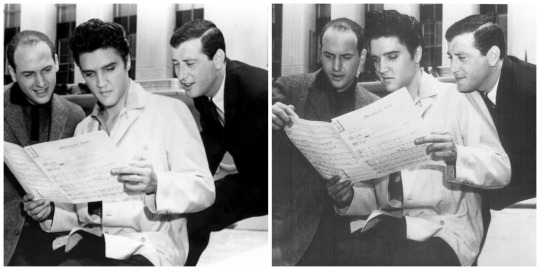
#elvis presley#leiber and stoller#i could really yell here because it makes me so upset and angry but#i was reading something with sheree north who liked him so much and wanted to help him and she referred to the mm as “the goons”#they did what they were instructed to do under the auspices of it being somehow better for elvis but it wasn't#he wasn't some thing to be managed he was a human being and an artist with aspirations#it just breaks my heart how that was thwarted or suppressed or exploited over and over again#anyway shout out to elvis australia they do so much and have such informative pages <3#this was one of the earliest stories i read when i started digging into the foundation of his career#anonymous#letterbox#total aside but the number of guys who go “i'm totally straight but he was breathtaking” is endless and always makes me giggle#sorry the formatting on this is awful i did it on mobile somewhat unsuccessfully#i was a dreamer
11 notes
·
View notes
Text
LÉGENDES DU JAZZ
BILLY HIGGINS, ‘’SMILING BILLY’’
“Billy Higgins’s talent will never be duplicated – not that any style can be – but his mark on jazz history is indelible. Billy Higgins represents four decades of total dedication to his chosen form of American music: jazz.”
- Cedar Walton
Né le 11 octobre 1936 à Los Angeles, en Californie, Billy Higgins était issu d’une famille de musiciens. Élevé dans le ghetto afro-américain de Watts, Higgins avait commencé à jouer de la batterie à l’âge de cinq ans sous l’influence d’un de ses amis batteurs. À l’âge de douze ans, Higgins avait travaillé avec des groupes de rhythm & blues, notamment avec des musiciens comme Amos Milburn et Bo Diddley. Au début de sa carrière, Higgins avait également collaboré avec les chanteurs et chanteuses Brook Benton, Jimmy Witherspoon et Sister Rosetta Tharpe.
Surtout influencé par Kenny Clarke, Higgins avait aussi été marqué par Art Tatum et Charlie Parker. En octobre 2001, le chef d’orchestre John Riley du Vanguard Jazz Orchestra avait résumé ainsi les influences d’Higgins: “Billy dug the melodiousness of Max Roach and Philly Joe Jones, Art Blakey’s groove, Elvin Jones’s comping, Ed Blackwell’s groove orchestration, and Roy Haynes’ individualist approach.” Higgins avait hérité de son surnom de ‘’Smiling Billy’’ en raison du plaisir communicatif qu’il avait de jouer de la batterie.
DÉBUTS DE CARRIÈRE
Higgins, qui s’était rapidement intéressé au jazz, avait commencé sa carrière en se produisant avec différents musiciens locaux comme Dexter Gordon, Carl Perkins, Leroy Vinnegar, Slim Gaillard, Teddy Edwards, Joe Castro et Walter Benton. À l’âge de quatorze ans, Higgins avait rencontré le trompettiste Don Cherry. En 1953, le duo était parti en tournée sur la Côte ouest avec les saxophonistes George Newman et James Clay dans le cadre du groupe The Jazz Messiahs.
En 1957, Higgins s’était joint au quartet de Red Mitchell qui comprenait également la pianiste Lorraine Geller et le saxophoniste ténor James Clay. Higgins avait d’ailleurs fait ses débuts sur disque avec le groupe de Mitchell dans le cadre d’une collaboration avec les disques Contemporary de Lester Koenig. Higgins avait quitté le groupe de Mitchell peu après pour se joindre à la nouvelle formation d’Ornette Coleman, aux côtés de Don Cherry à la trompette, de Walter Norris au piano, et de Don Payne et de Charlie Haden à la contrebasse. Higgins, qui avait commencé à pratiquer avec Coleman en 1955, avait fait partie du groupe du saxophoniste sur une base permanente de 1958 à 1959, participant notamment à l’enregistrement des albums ‘’Something Else’’ (février-mars 1958), ‘’The Shape of Jazz to Come’’ et ‘’Change of the’’ Century’’, tous deux enregistrés en 1959. Higgins avait également participé aux concerts controversés du groupe au club Five Spot de New York en novembre 1959. Commentant la prestation du groupe, le critique Jon Thurber du Los Angeles Times avait qualifié le concert d’un des événements les plus légendaires de l’époque. Thurber avait ajouté: ‘’The event crowded the room with every available jazz musician and aficionado.”
Higgins s’étant vu interdire l’accès des clubs de New York à la suite d’une altercation avec la police, Higgins s’était joint au quintet de Thelonious Monk. Il était par la suite allé jouer avec le groupe John Coltrane en 1960.
Le 21 décembre 1960, Higgins avait de nouveau retrouvé Coleman dans le cadre de l’enregistrement de l’album controversé ‘’Free Jazz: A Collective Improvisation’’ mettant en vedette le double quartet de Coleman, composé de Coleman au saxophone alto, de Don Cherry à la trompette et au cornet, de Freddie Hubbard à la trompette, d’Eric Dolphy à la flûte, à la clarinette basse et au saxophone soprano, de Scott LaFaro et Charlie Haden à la contrebasse et de Higgins et Ed Blackwell à la batterie.
Devenu un des batteurs les plus en demande du monde du jazz, Higgins avait participé à plusieurs sessions pour les disques Blue Note dans les années 1960, principalement dans des contextes de hard bop. En 1962-63, Higgins s’était joint au groupe de Sonny Rollins avec qui il avait participé à une tournée en France. À la même époque, Higgins s’était également produit avec Donald Byrd, Dexter Gordon, Hank Mobley, Art Farmer, Jimmy Heath, Steve Lacy, Jackie McLean, Herbie Hancock et Lee Morgan.
Le jeu de Higgins à la batterie avait été particulièrement mis en évidence sur des enregistrements comme “Point of Departure’’ d’Andrew Hill, “Takin' Off’’ d’Herbie Hancock (qui comprenait le classique ‘’Watermelon Man’’), “Freedom Jazz Dance” d’Eddie Harris, ‘’Go !’’ de Dexter Gordon et “The Sidewinder’’ de Lee Morgan.
À partir de 1966, Higgins s’était produit régulièrement avec le pianiste Cedar Walton, avec il a enregistré plusieurs albums pour des compagnies de disques européennes jusqu'au milieu des années 1980.
DERNIÈRES ANNÉES
Après s’être fait désintoxiquer en 1971, Higgins avait formé le groupe Brass Company avec le saxophoniste ténor Claude Bartee et le trompettiste Bill Hardman. Après s’être installé à Los Angeles en 1978, Higgins avait formé avec Walton et le le saxophoniste George Coleman le groupe Eastern Rebellion. À la fin des années 1970, Higgins avait également enregistré comme leader, faisant paraître des albums comme ‘’Soweto’’ (1979), ’’The Soldier’’ (1979) et ‘’Once More’’ (1980).
Dans les années 1980, Higgins avait également collaboré avec Pat Metheny et Slide Hampton. Tout en participant à des tournées internationales avec les Timeless All Stars et à des réunions avec Ornette Coleman et Don Cherry, Higgins avait eu un petit rôle dans le film de Bertrand Tavernier ‘’Round Midnight’’ aux côtés de Dexter Gordon en 1986. Il avait aussi fait partie du trio de Hank Jones. Toujours en 1986, Higgins avait fait partie du Quartet West de Charlie Haden, aux côtés d’Ernie Wax au saxophone et d’Alan Broadbent au piano. Après avoir connu certains problèmes de santé, Higgins avait été éventuellement remplacé par Larance Marable.
Très impliqué socialement, Higgins avait co-fondé en 1989 avec le poète Kamau Daáood le World Stage, un centre communautaire et culturel qui avait pour but de favoriser le développement de la musique, de la littérature et de l’art afro-américain. Le groupe, qui soutenait également la carrière de jeunes musiciens de jazz, organisait régulièrement des ateliers, des enregisrements et des concerts dans le quartier de Leimert Park à Los Angeles. Tous les lundis soirs, Higgins donnait des cours de batterie aux membres de la communauté. Higgins, qui s’intéressait particulièrement aux enfants, avait déclaré au cours d’une entrevue accordée au magazine LA Weekly en 1999:
"They should bus children in here so they can see all this, so they could be a part of it. Because the stuff that they feed kids now, they'll have a bunch of idiots in the next millennium as far as art and culture is concerned. I play at schools all the time, and I ask, 'Do you know who Art Tatum was?' 'Well, I guess not.' Some of them don't know who John Coltrane was, or Charlie Parker. It's our fault. Those who know never told them. They know who Elvis Presley was, and Tupac, or Scooby-Dooby Scoop Dogg--whatever. Anybody can emulate them, because it's easy, it has nothing to do with individualism. There's so much beautiful music in the world, and kids are getting robbed.’’
Également professeur, Higgins avait enseigné à la faculté de jazz de l’Université de Californie à Los Angeles (UCLA). Il avait aussi été très impliqué dans plusieurs activités en faveur de la conservation et de la promotion du jazz.
Toujours très en demande dans les sessions d’enregistrement, Higgins s’était produit sur une base régulière avec le saxophoniste Charles Lloyd de 1999 à 2001. Il dirigeait aussi ses propres groupes.
Atteint d’une maladie des reins, Higgins avait dû mettre sa carrière sur pause dans les années 1990, mais il avait repris sa carrière après avoir subi avec succès une greffe du foie en mars 1996, se produisant notamment avec Ornette Coleman, Charles Lloyd et Harold Land.
Billy Higgins est mort le 4 mai 2001 au Daniel Freeman Hospital d’Inglewoood, en Californie, des suites d’un cancer du foie. Il était âgé de soixante-quatre ans. Ont survécu à Higgins ses fils Ronald, William Jr., David et Benjamin, ses filles Ricky et Heidi, son frère Ronald, son gendre Joseph (Jody) Walker, son neveu Billy Thetford et sa fiancée Glo Harris. À l’époque, Higgins avait divorcé de sa première épouse Mauricina Altier Higgins.
Peu avant sa mort, Higgins avait joué le rôle d’un batteur de jazz dans le film ‘’Southlander’’ de Steve Hanft et Ross Harris.
Au moment de son décès, Higgins venait d’être hospitalisé pour une pneumonie et attendait une seconde greffe du foie. Dans son dernier numéro publié avant la mort de Higgins, la revue française Jazz Magazine avait lancé une campagne de souscription en faveur de Higgins, le batteur n’ayant pas des revenus suffisants pour couvrir ses frais médicaux. Deux ans avant sa mort, le saxophoniste Charles Lloyd avait témoigné de la santé fragile de Higgins en déclarant: ’’Billy Higgins a une santé précaire, et cette fragilité physique confère à son jeu une délicatesse unique. Jouer avec lui, c'est un peu comme jouer à la maison. Il y a une telle conjonction entre nous. Un seul regard suffit et le disque est enregistré.’’ Comparant Higgins à un maître zen, Lloyd avait ajouté: “everybody who plays with him gets that ecstatic high.” Rendant hommage à Higgins après sa mort, son collaborateur de longue date, le pianiste Cedar Walton, avait ajouté: “Billy Higgins’s talent will never be duplicated – not that any style can be – but his mark on jazz history is indelible. Billy Higgins represents four decades of total dedication to his chosen form of American music: jazz.”
Higgins avait livré sa dernière performance le 22 janvier 2001 dans le cadre d’un concert présenté au club Bones and Blues de Los Angeles. Le concert, qui mettait également en vedette les saxophonistes Charles Lloyd et Harold Land, avait pour but de soutenir la lutte d’Higgins contre le cancer du foie.
Reconnu pour son swing léger mais actif, son jeu subtil et raffiné et sa façon mélodique de jouer de la batterie, Billy Higgins avait collaboré avec les plus grands noms du jazz au cours de sa carrière, de Ornette Coleman à Don Cherry, en passant par Sonny Rollins, Cedar Walton, Herbie Hancock, Abudullah Ibrahim, Bheki Mseleku, Roy Hargrove, Pat Metheny, Charles Lloyd, Donald Byrd, Freddie Hubbard, Eric Dolphy, John Scofield, Thelonious Monk, Scott LaFaro, Cecil Taylor, Charlie Haden, Hank Jones, Dexter Gordon, Hank Mobley, Grant Green, Joe Henderson, Art Farmer, Sam Jones, Dave Williams, Bob Berg, Monty Waters, Clifford Jordan, Ira Sullivan, Sun Ra, Milt Jackson, Jimmy Heath, Joshua Redman, John Coltrane, Eddie Harris, Steve Lacy, David Murray, Art Pepper, Mal Waldron, Jackie McLean et Lee Morgan. Higgins avait également collaboré avec le compositeur La Monte Young.
Higgins a participé à plus de 700 enregistrements au cours de sa carrière, ce qui en faisait un des batteurs les plus enregistrés de l’histoire du jazz. Qualifiant le jeu de Higgins, le critique Ted Panken du magazine Down Beat avait commenté: "To witness him--smiling broadly, eyes aglimmer, dancing with the drum set, navigating the flow with perfect touch, finding the apropos tone for every beat--was a majestic, seductive experience." De son côté, le chef d’orchestre Larry Riley avait précisé: “Billy was a facilitator, not a dominator. He would enhance the direction the music ‘wanted’ to go in rather than impose his own will on the composition. You can hear that Billy was a master at creating a good feeling in the rhythm section. Dynamically, he used the entire spectrum— but with great restraint. His comping and overall flow were very precise but very legato.”
Higgins, qui avait surtout appris son métier en utilisant une approche d’essais-erreurs, avait résumé ainsi sa méthode d’apprentissage:
“That’s where you learn. You learn to be in context with the music and interpret. You make your mistakes and you learn. Most of the drummers that are working are people who know how to make the other instruments get their sound. Kenny Clarke was a master at that. It sounds like he was doing very little, and he was, but what he implied made all the instruments get their sound. Philly Joe, Elvin—as strong as they played, they still bring out the essence of what the other musicians are playing. Roy Haynes, Max, Art Blakey—none of them played the same. You try to add your part, but the idea is to be part of the music and make it one. That’s the whole concept for me.”
Décrivant la contribution d’Higgins à l’histoire du jazz, le contrebassiste Ron Carter avait ajouté: “Billy Higgins was the drummer of the 20th century who put the music back into the drums. He was fabulous. He always played the form, and he was aware not only of the soloists, but also of his rhythm section mates.” Saluant le professionnalisme et la grande préparation d’Higgins, Carter avait précisé: “He was always on time, with his equipment ready, and he contributed to the general outlook of the group no matter where [we were] or how many people were involved. He made the music feel good.” De son côté, le pianiste Cedar Walton avait commenté: “His style is well-documented, but to see Billy in person at his drums was the ultimate jazz experience.”
Billy Higgins avait été élu ‘’Jazz Master’’ par la National Endowment for the Arts en 1997. En 1988, Higgins avait également remporté un prix Grammy conjointement avec Ron Carter, Herbie Hancock et Wayne Shorter pour la composition “Call Sheet Blues” tirée de la bande sonore du film ‘’Round Midnight.’’ Par la suite, Higgins avait fait partie du Round Midnight Band avec le saxophoniste Dexter Gordon.
Le saxophoniste Charles Lloyd avait rendu un des meilleurs hommages qu’on pouvait rendre à Higgins lorsqu’il avait déclaré: "Jazz is the music of wonder and, and he's the personification of it.’’ Higgins s’était toujours considéré comme un peu privilégié d’avoir pu faire une carrière musicale. Comme il l’avait mentionné peu de temps avant sa mort: "I feel blessed to play music, and it's also an honor to play music. You've got a lot of people's feeling in your hands."
2 notes
·
View notes
Text
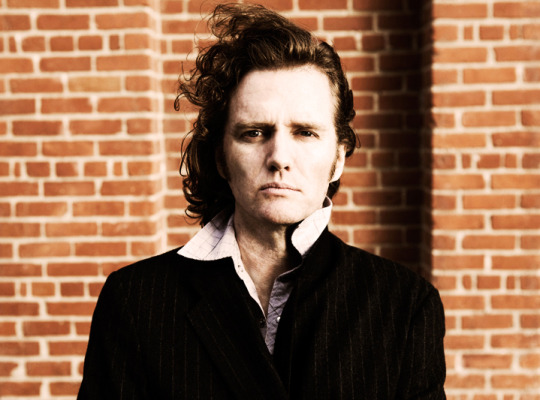
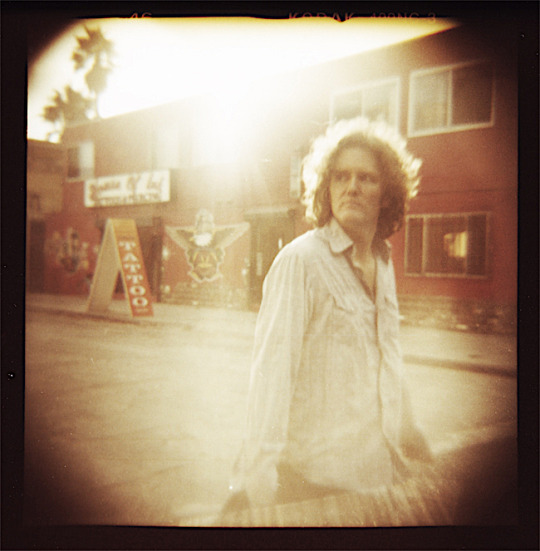
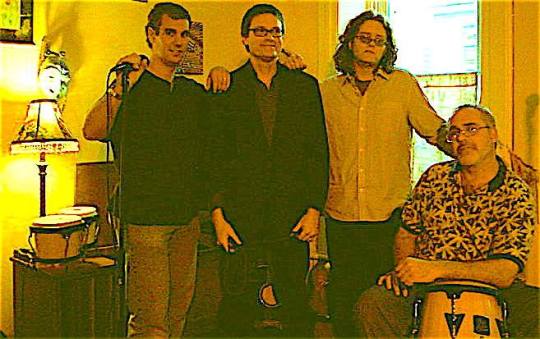
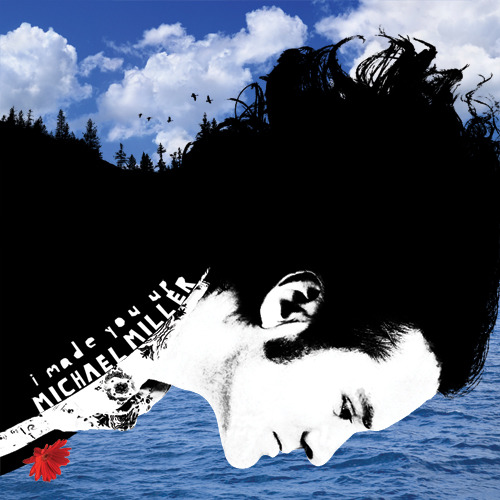
HAPPY BIRTHDAY to John Barbata, The Bauhaus School (1919), Wallace Beery, Alan Blakeley (Tremeloes), the 1930 BLUE ANGEL film, Lucille Bogan, D. Boon, Susan Boyle, Danny Brooks (Dovells), Jim Ed Brown, Kenny Buttrey, Harry Carney, Lon Chaney, Simon Crowe (Boomtown Rats), Billie Curry (Ultravox). Eddy Duchin, Jimmy Cliff, Nikolai Gogol, Henry Gross, Susumu Hirasawa, Alberta Hunter, Rudolph Isley, Duke Jordan, Gordon Jump, Ronnie Lane, Jimmie Lloyd (“I’ve Got a Rocket in my Pocket”), Art Lund, Ali MacGraw, the 1972 Mar Y Sol concert, Phil Margo (Tokens), Kris Marshall, Toshiro Mifune, Amos Milburn, Peter O’Toole (Hothouse Flowers), David Oyelowo, Bijou Phillips, Jeff Porcaro, Jack Pyers, Sergei Rachmaninoff, Debbie Reynolds, Sam & Dave’s 1966 “Hold On I’m Comin’” single, Gil Scott-Heron, Eddie Severn, William James Sidis, Rob Wasserman, Mark White (ABC), Grace Lee Whitney, my Grandfather Rufus Wilson, and my old friend, graphics artist, & sublime singer-songwriter Michael Miller.
I urgently recommend people to listen to his music http://michaelmillercrusade.com, an evocative mash of confessional song crafting with unhurried dreamscapes drawn from subtle frequencies felt in "the White Album." His career has intersected with Beck, The Gilmore Girls TV show, Sam Phillips, The 77s, The Wallflowers, and other lumineers. I've been blessed to have shared the stage with him a few times, and he guested on my GRATEFUL album and some porta-studio projects. Here’s a track of mine he played guitar on: https://johnnyjblairsingeratlarge.bandcamp.com/track/the-brakemans-dead-remastered-2020 Meanwhile, HB MM and God bless your crusade.
#michaelmiller #michaelmillercrusade #johnnyjblair #gilmoregirls #beck #samphillips #the77s #wallflowers #singersongwriter
#Michael Miller#Micheal Miller Crusade#johnny j blair#singer songwriter#music#singer at large#san francisco#monkees#pop rock#davy jones#Gilmore Girls#Beck#Sam Phillips#The 77s#Wallflowers
2 notes
·
View notes
Video
youtube
I Performed A Song on The Great Blues Night @ Wega in Malmö (Swe) this evening. (2023-11-28) Tune: Drifting / Made By: Stellan Viking / Inspired By, Amos Milburn !!! Afterwards I Received a Standing Ovation From The Lovely Friendly "blues Fan" and People There! Thank You so Much, I Really Appreciate All Your Kind Gesture. 🫶❤️🫶 Also To All The People That Came To Me with Compliments Afterwards. 🫶❤️🫶 Thank You To "Monica Bengtsson" Too Your Kindness, as A Lovely Person Fantastic Restaurant + Cool Crew !!! And "At Last" But Not Least To All The Great and All So Friendly Multi Talent Musicians There !!! Including The, Wonderful Houseband !!! Feat: Dennis Westerberg - BluesHarp... Benny Pedersen - Pedal Steel Guitar... Johannes Bjerlin - Guitar... Martin Jönebäck - Keyboards... Mats Orbation - Bass... SaraClaes Schmidt on Drums... With Me on Stage *Stellan "Iry" Viking - Lead Vocal... 🫶❤️🫶 *Movie & Photo by - Stellan "Iry" Viking @WorldwidewelcomE !!!
0 notes
Text
We got some killer new titles in at Slovenly USA
And some Jawbreaker records too: sloven.ly/store1
Stoked to have Tha Retail Simps cruddy-ing up our inventory... GET THIS! And the new one from The Whiffs? YASS QUEEN. If you're not getting it from us, get it from the dudes demselves on their upcoming August tour!
New LP from Paint Fumes too. You can't beat it with a bat!
Best repro of the lot? That's easy... THE VALIANTS "Tequila Twist" is one of the hairiest jungle exotica tracks E.V.E.R. and it's backed with a swingin' SHAN-TONES track for this ish.
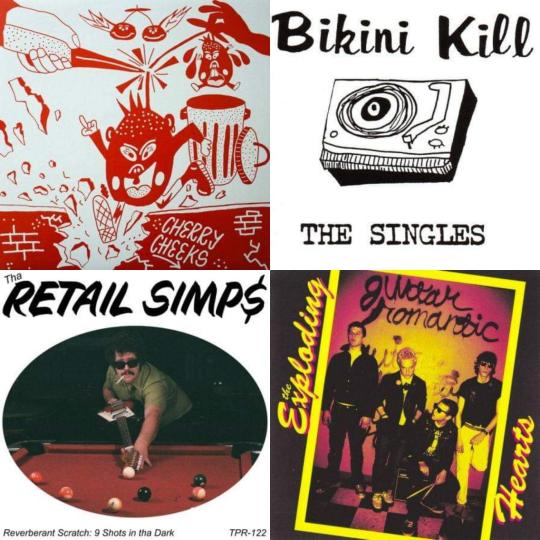
Tonsa other ubercool garbage back in stock as well... CHECK IT OUT.
CHERRY CHEEKS "S/T" LP (Second press)
SICK THOUGHTS "Heaven Is No Fun" LP (Third press)
TEE VEE REPAIRMANN "What's On TV" (Third press) LP
JOHN & CAROL WITH THE SAVONICS "Get Your Hat" / BILLY "THE KID" EMERSON "I Did The Funky Broadway" 7”
JIMMY DEE "The Push" / DANNY LUCIANO "Get Into It" 7”
VALIANTS "Tequila Twist" / SHAN-TONES "Sheba" 7"
ROLLERS "Troubles" / ELMER PARKER & THE LIGHT LIGHTERS "Look Out Baby" 7”
JIMMY NOLEN "How Fine Can You Be/ Strollin' With Nolen" 7"
PRESTON LOVE "If You Ever Get Lonesome/ Groove Juice" 7"
LOS DADDYS "Cumbia Kairo / La Cumbia Primero De Mayo" 7"
VARIOUS ARTISTS "Rhythm And Blues Guitar Crushers Vol. 1" LP
VARIOUS ARTISTS "Vocal Group Madness!" LP
SCREAMING LORD SUTCH “Story” (LTD., RED vinyl) LP
BIKINI KILL "Revolution Girl Style Now" LP
BIKINI KILL "The Singles" 12" (CLEAR BLUE vinyl)
EXPLODING HEARTS "Guitar Romantic (Expanded & Remastered)" LP
JAWBREAKER "Bivouac" (GREEN vinyl) LP
JAWBREAKER "Unfun" LP
RETAIL SIMPS, THA "Reverberant Scratch: 9 Shots In Tha Dark" LP
HILL, BUNKER "The Girl Can't Dance/ You Can't Make Me Doubt My Baby" 7"
FLOYD DIXON "Roll Baby Roll / Hey Bartender" 7"
GRIFFIN BROTHERS ORCHESTRA "I Wanna Go Back / Stubborn As A Mule" 7"
CHRIS KENNER "Sick & Tired/ ERNIE FREEMAN "Dumplins'" 7"
NATHANIEL MAYER "I Want Love And Affection / From Now On" 7"
MICKEY & SYLVIA "No Good Lover / Walkin' In The Rain" 7"
AMOS MILBURN "House Party/ I Done Done It" 7"
MORGUS & THE DARINGERS "Werewolf/ The Morgus Creep" 7"
Back in Stock:
MISFITS "American Psycho" (ORANGE vinyl) LP
COCK SPARRER "S/T" LP
13th FLOOR ELEVATORS "Psychedelic Sounds Of" LP
VARIOUS ARTISTS "Universe Rocketin'" LP
CRAMPS 'Psychedelic Jungle' LP
MISFITS "12 Hits From Hell: The MSP Sessions" LP (ORANGE vinyl)
SAMHAIN "Initium" LP (Random Colored vinyl)
SAMHAIN "Unholy Passion" LP (Random Colored vinyl)
SAMHAIN "Final Descent" (GREEN vinyl) LP
BAGS "All Bagged Up" LP
BIKINI KILL "S/T" 12"
VARIOUS ARTISTS "Buzzsaw Joint Cut 1 - Diddy Wah" LP
VARIOUS ARTISTS " Buzzsaw Joint Cut 2 - Astro 138 & DJ Zorch" LP
VARIOUS ARTISTS "Buzzsaw Joint Cut 3/ Pavinyl" LP
VARIOUS ARTISTS "Buzzsaw Joint Cut 4/ Juke Joint" LP
VARIOUS ARTISTS "BUZZSAW JOINT: Cut 5 / Sophisticated Savage" LP
VARIOUS ARTISTS "BUZZSAW JOINT Cut 6: Dusty Stylus" LP
VARIOUS ARTISTS "Buzzsaw Joint Cut 7: James & Misty" LP
BUZZSAW JOINT "Cut 8/Johnny Alpha & Carl Combover" (VIOLET vinyl) LP
GIBBLE GOBBLE - EXOTIC BLUES & RHYTHM Vol. 5 10"" (CLEAR vinyl) 10"
OOP BOOMP: Exotic Blues & Rhythm Vol. 13 10"
VARIOUS ARTISTS "Slow Grind Fever Vol. 5" LP
VARIOUS ARTISTS "Slow Grind Fever Vol. 9" LP
VARIOUS ARTISTS "Slow Grind Fever Vol. 10" LP
VARIOUS ARTISTS "Gunsmoke Volume 3: Dark Tales Of Western Noir From A Ghost Town Jukebox" 10"
VARIOUS ARTISTS "Gunsmoke Volume 5: Dark Tales Of Western Noir From A Ghost Town Jukebox" 10"
VARIOUS ARTISTS "Gunsmoke Vol. 7- Dark Tales Of Western Noir From The Ghost Town Jukebox" 10"
VARIOUS ARTISTS "Gunsmoke Vol. 8- Dark Tales Of Western Noir From The Ghost Town Jukebox" 10"
VARIOUS ARTISTS "Songs From Satan's Jukebox Vol. 1" 10"
VARIOUS ARTISTS "Trashcan Records Volume 2: Midnight" 10"
VARIOUS ARTISTS "Trashcan Records Volume 5: Cha Cha Bop" 10"
#slovenlydistro#mailorder#vinylrecords#vinyls#records#7inches#7inchsingle#The Whiffs#Bikini Kills#Buzzsaw Joint#cramps#misfits#13th floor elevators#paintfumes#the valiants
0 notes
Text
ooo fun!!
One Scotch, One Bourbon, One Beer - Amos Milburn
Tain't What You Do (It's the Way That You Do It) - Jimmie Lunceford
Stop, Look, and Listen - Patsy Cline
Never Thought - Mel Bryant & the Mercy Makers
Midnight Rhumba - Johannes Linstead
Color in Your Cheeks - The Mountain Goats
Maldonda - Armki
All That Meat and No Potatoes - Louis Armstrong
Cheek to Cheek - the Pasadena Roof Orchestra
The Young Thousands - The Mountain Goats
Tagging: @poisonhemloc @shieldwitch @robezpierre @gelatinjupiter @vaxxildan @fiend-for-culture @neopetsfurry (obvs only do it if you want to no pressure!)
thanks for the tag @wineonmytshirt @charlesleclerctv @truetaurus !!
shuffle your ‘on repeat’ playlist and list the first 10 songs that play, then tag 10 people.
espresso by sabrina carpenter
1000 blunts by $uicideboy$
fortnight by ts and post malone
prove yourself by radiohead
good luck, babe! by chappell roan
the only thing by sufjan stevens
carolina by ts
it's not ok by this cold night
florida!!! by ts and florence + the machine
i will by radiohead
no pressure tags: @haismie @fortnightthere @candoitwithabrokeheart @godsfavdarling @evermorecatra @anervousmirrorball @arobarbie @chappelroans @weeping-in-the-willows @coffeeisaritual @umbreonwolfy @captainpissofff @animallover4000 @astrariums @osblaineswiftie @evermqres @lonelydncers @timeless-pdf @doesntseeyourbeauty @anixknowsnothin @redwidow616 @abodyhasbeenfound
#ask game#1-3 and 8-9 are all swing music#5 and 7 are from a writing playlist#4 was from a punk playlist but i listened to the album and it's good but idk if it's punk#and 6 and 10 are the goats!
53 notes
·
View notes
Audio
1961
15 notes
·
View notes
Video
youtube
Amos Milburn (1927 – 1980) was an American rhythm-and-blues singer and pianist, popular in the 1940s and 1950s. "Bad, Bad Whiskey"
5 notes
·
View notes
Photo

Amos Milburn, probably mid 1940′s
7 notes
·
View notes
Audio
Amos Milburn - Chicken Shack Boogie (1948) Amos Milburn from: "It Took a Long, Long Time" / "Chicken Shack Boogie"
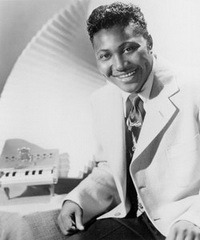
Amos Milburn
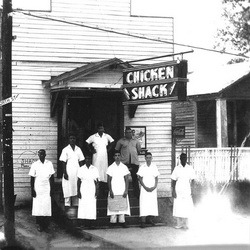
9 notes
·
View notes